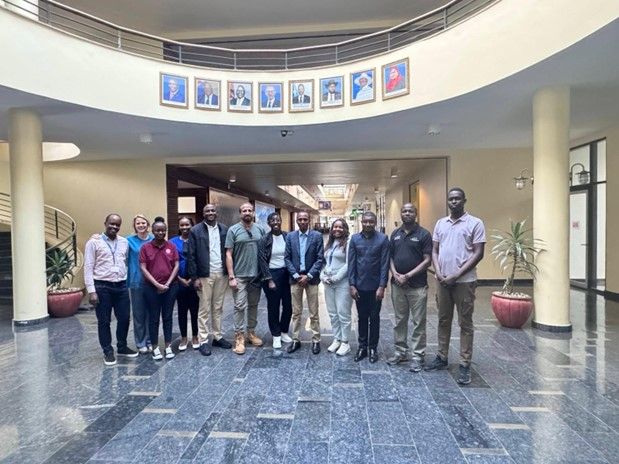From 23 to 26 April, a technical scoping workshop held at the EAC headquarters in Arusha, Tanzania, examined the registration and digitalization processes of Competent Authorities for Engineers. The workshop, facilitated by experts from GIZ’s Digital Society Unit, brought together representatives from Kenya, Rwanda, South Sudan, Uganda, the United Republic of Tanzania, and the EAC Secretariat, represented by the Principal ICT Officer, Mr Daniel Murenzi.
This platform provided experts with a space for fostering peer-to-peer learning, exchanging ideas, and defining practical solutions. Through thorough assessment and consultation, stakeholders identified areas for improvement and established the basis for a more efficient mutual recognition framework.
An envisioned digital platform seeks to simplify and expedite mutual recognition procedures by digitising documentation and communication channels. This streamlined approach is expected to significantly enhance the efficiency of cross-border transactions and the overall quality of engineering services within the region. Moreover, it could serve as a blueprint for interoperable regional e-governmental services.
Looking ahead, there's tangible potential to expand the scope of the digital platform to include additional areas, such as mutual recognition of pharmaceuticals among other goods and services. This integrated system could catalyse broader regulatory harmonisation efforts, promoting greater consistency and efficiency in trade across East Africa.
To successfully achieve these initiatives and derive an impact on the community, Competent Authorities need to pledge commitment and willingness to implement the agreed-upon measures and embrace digital solutions.
The outcomes of these discussions pave the way for continued dialogue and collaboration, facilitating the development and implementation of digital solutions that transcend national borders. As a next step, it was unanimously agreed to proceed with developing a demo version of the platform. This version will visualise the expected outlook of the platform for further partner discussions and consideration.
Participants are confident that the platform will serve countless engineers in their endeavours for mutual recognition. Furthermore, it was emphasised that, while the focus of this process remains steadfast on a harmonised regional approach, it takes into account existing Partner States' national systems and interests.
Background
In embracing digital innovation, the EAC reaffirms its commitment to progress. As the region embarks on this transformative journey, the fusion of digitalization and collaboration emerges as a promising avenue for improving professional recognition across borders.
The past signing of Mutual Recognition Agreements (MRAs) by Kenya, Rwanda, Uganda, and the United Republic of Tanzania represents a practical step forward in addressing the challenges of professional recognition within East Africa. With South Sudan on track to join and efforts underway to establish Competent Authorities in other EAC Partner States like Burundi, there's a clear momentum towards streamlining processes and enhancing regional integration.
The Digitalisation for East African Trade and Integration (DIGEAT) project, a collaborative initiative between the EAC and GIZ financed by BMZ, is taking the lead in supporting the implementation of this endeavour. This initiative aims to modernise the recognition process for licensed engineers by facilitating seamless digital exchange among regulatory bodies and leveraging regional e-government services.
Find more information on the DIGEAT project here.
